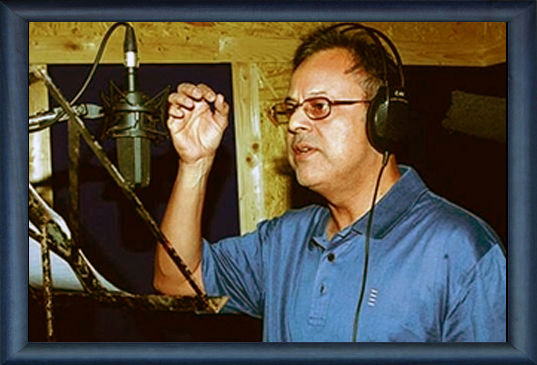Shailendra Singh began singing in films in the early 1970s. He belongs to the middle generation of playback singers, the one that came too late to partake of the musical feast of the '50s and 60s and too early to escape the awesome shadows cast by the legends. By the time these singers got their moorings they found themselves competing with an entirely new generation, the Shabbirs and the Azizes. They never quite got their moment in the sun.
Shailendra Singh had always been musically inclined but he decided to give serious consideration to acting. Although a bit on the short side, he had the requisite looks for a Hindi film hero and so he joined the acting course in the Film Institute in Pune. The year was 1970. At the time Raj Kapoor was in the process of making Bobby. The film was to introduce his second son, Rishi. As part of the overall theme of freshness, Kapoor had found himself a new leading lady, Dimple Kapadia and switched his allegiance from
Shankar Jaikishen to
Laxmikant Pyarelal. He was also, therefore, quite open to the idea of a new singing voice that could be identified exclusively with his film's hero.
On his way to becoming an actor, Shailendra Singh auditioned as a singer and thereby changed completely the direction of his life. The success of Bobby made him the leading contender as Rishi Kapoor's "voice", just as
Mukesh had been for Raj Kapoor, But the parallel ends there. The string of flops Rishi endured after Bobby did not help the new singer. By the time the actor came up with a few hits, Shailendra had slipped too badly to recover. He lost the Bobby lustre, the aura of freshness, youth, and the psychological momentum that success gives. In hindsight, one wonders what happened to so bright a beginning, so powerful a launching pad. What happened to the singer whose first four songs had become bywords in the smallest of Indian towns and villages, songs sung by little children and played in every baraat procession? Was Bobby just a lucky accident or was it part of the Raj Kapoor phenomenon? Was Shailendra Singh lacking in some essential traits as a singer?
The very people who raved about the Bobby songs and the new singer have exhibited an uncharacteristic indifference to him over the years. It is not some clear active dislike. It is not some serious flaw in his singing. It is nothing they can articulate. The singer simply fails to arouse intense feelings, feelings of loyalty and personal identification, and in my view that is often what spells the difference between a major singer and a minor one.
But he has survived the bleak periods of neglect, long periods of bad music, and the heavy onslaught of newer singers. Like Manhar, Shailendra is regarded a 'senior' singer today. He is a must for group numbers, the reliable second voice in an all male duet, but only an occasional choice for a main-line romantic duet or solo. He endures because, for one thing, he has become seasoned by the extremes, success in films blowing hot and cold in turns. Like most people in the industry he subscribes to the notion of Lady Luck - that hidden hand in the lives of men. But unlike most of his contemporaries, he seems to possess a remarkably detached perspective on life. He laughs heartily and often even at his own expense. He seems to take most things lightly. He finds his own predicaments hilarious, or at least he seems to have taught himself to do so. In his debut-making film (Do jasoos), he reports with a straight face, the heroine, chased by gangsters, "did a lot of running; she may even have fallen once or twice," while he, as the film's hero, just "stood around." His acting career thereafter, he says, consisted of guest appearances, "more guests, less appearances."
As for his singing, his voice quality remains his strongest feature. It resembles none of the known singers, past or present. It is clear, robust, forceful. Even today, and even in a number over-loaded with male singers, Shailendra's voice remains distinct.

